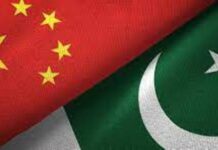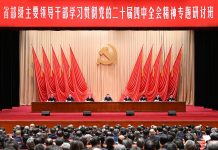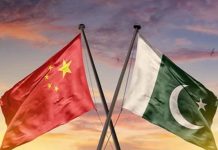The unfolding tragedy in Ukraine is causing grave concerns, increasing uncertainties in a world that has already been ravaged by two years by the COVID-19 pandemic and other global predicaments such as climate change, growing inequality and geopolitical games.
What seems to be certain, though, is that neither war nor harsh economic sanctions will lead to a lasting solution to the current crisis, which goes beyond Russia and Ukraine. A diplomatic solution is the only way out.
That opportunity was wasted weeks ago when the United States and NATO refused to address Russia’s core security concern of halting NATO’s further eastward expansion in their response to Russia’s demands.
Speaking on CNN’s Fareed Zakaria’s GPS, Richard Haass, president of New York-based Council on Foreign Relations and a former State Department policy planning chief, talked about a possible scenario for the US to defuse the tensions by saying that it has no intention of making Ukraine a NATO member in the foreseeable future.
US Senator Bernie Sanders then echoed Russia’s security concerns, saying that the US won’t accept Cuba, Mexico or any country in Central or Latin America forming a military alliance with a US adversary, citing the notorious Monroe Doctrine, which still influences Washington’s policies.
Reaching a compromise, sadly, is no longer an option, because many political leaders believe that that will make them look weak, unlike what former US president Bill Clinton famously said while mediating Middle East peace: compromise is a sign of strength, not weakness.
That said, any war, or any action that violates a nation’s sovereignty and territorial integrity should not be justified. The same is true for economic sanctions.
Wars and economic sanctions will only hurt innocent civilians, especially women and children, as proven in the past. The rising oil prices due to the Ukraine-Russia conflict and the economic sanctions the West has imposed on Russia, for example, are punishing the entire world, especially the poor countries.
The global order should be in line with the UN Charter rather than the so-called rules-based order devised by some Western countries without the participation of most of the developing nations, which includes coercing the whole world into complying with US unilateral economic sanctions that are not endorsed by the United Nations.
China, which has friendly relations with both Russia and Ukraine, wants an end to the conflict, unlike some countries that have good ties with only one side and seek to profit from the crisis, often by adding fuel to the fire.
In his virtual meetings with French President Emmanuel Macron and German Chancellor Olaf Scholz on Tuesday, President Xi Jinping said that the Chinese side is deeply aggrieved by the conflict. He said that all efforts that are conducive to the peaceful settlement of the crisis must be supported, and the pressing task at the moment is to prevent the situation from worsening and spiraling out of control.
Both Macron and Scholz worked hard for weeks to find a diplomatic solution to the Ukraine crisis, but Washington’s outsized influence especially in NATO and complicated domestic politics greatly limited their power and options.
Europe has already become a major victim of the crisis, both economically and geopolitically. And the worsening of the conflict could spell disaster for the continent and the world.
As a continent where the two previous world wars broke out, Europe needs to show more wisdom and courage to step up its efforts to find a diplomatic solution to the Ukraine-Russia conflict.
Scholz was right to reject Poland’s suggestion on Wednesday to send fighter jets to Ukraine, saying “what we need right now is a diplomatic solution”, because this is the time to douse the flames, not to add fuel to the fire. -The Daily Mail-China Daily News Exchange Item





